From The Chair
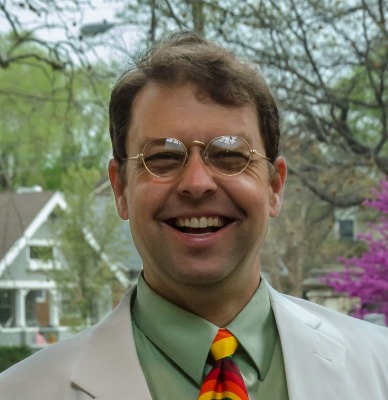
Greetings from our temporary quarters in Brennan II! Our time south of 17th Street continues. We are assured that it will not be permanent but will continue for about another year. The elevator addition to Fiske Hall was the first of several phases to bring the oldest surviving building on campus into the twenty-first century. The original part of Fiske is currently gutted. Even the walls and ceilings are gone. The good news is that the brick outer walls are in good repair. The interior wooden structure needs a fair bit of TLC, but nothing out of the ordinary for a 111-year-old structure. It does take time, however, to fix floors, replace the HVAC and water systems, and rebuild interior walls. The current expectation is for History and Philosophy to return at some point in late 2018.
The department’s faculty are continuing to offer an array of courses and conduct their research, even if their books and notes tend to be in cardboard boxes. At present, the department is in a maintaining mode, with no new faculty being hired at present, but there are hopes that perhaps new colleagues can be brought on board in the near future.
Maintaining continues alongside change. We mourn the passing of Bill Unrau, who had retired several years ago, but maintained a strong connection with the department. A new marketing campaign is taking shape, one that highlights the skills that the study of history brings to a wide range of careers and activities.
We continue to celebrate the many honors, activities, accomplishments, and milestones on the part of our students and alumni, as well as those of our faculty and emeriti. Feel free to drop us a line and share what you are up to. We may not be in Fiske but be assured, we are very much staying put as an important part of the WSU family!
History on the Move! The Original Pizza Hut Gets a New Home
The original Pizza Hut is getting a facelift and a new purpose. In September, a crew moved the brick and wood structure to a new location next to the Marcus Welcome Center where it will be developed into an interpretive center that will highlight the story of WSU alums Dan and Frank Carney taking on a food they had never eaten before, turning it into a successful business, and then turning that business into a franchise, and a food culture icon.
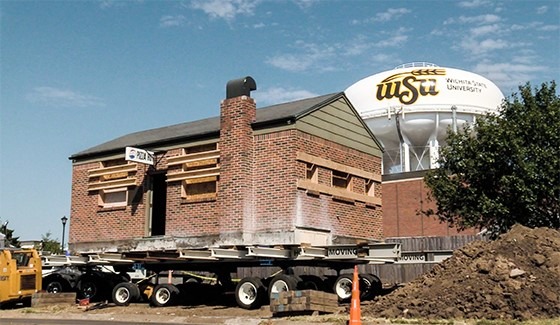
Flint Hills Design is developing the interpretive display that will use artifacts from the Pizza Hut corporation and the Carney family, working collaboratively with a team that includes Jay Price from History, Sue Abdinnour from Business, Lisa Parcell from Communications, and Rachelle Meinecke from the Lowell Holmes Museum.
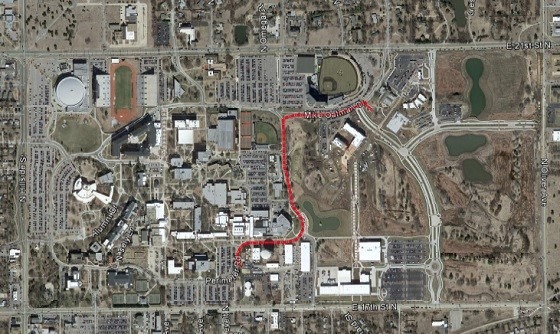
When it opens in 2018, in time for the 60th anniversary of Pizza Hut, the building will allow visitors on campus to learn about the company history and reflect on how they might have handled the challenges and risks that the Carneys, their franchisees, and their business partners all faced.
The Carneys may have come out of the university’s early entrepreneurship curriculum but the current rehabilitation has been connected solidly to the Department of History with Keith Pickus at the Foundation serving as the main contact, Price bringing in the local history and local entrepreneurship angle, and history students who are working with the Museum Studies Certificate program involved in other aspects of the project.
This is not the first move in the building’s history. The structure sat originally on Bluff just south of Kellogg and was moved to WSU in the 1980s.
Alums Speak …
with Bethany Kennedy, MA 2012
What was your experience like as a Wichita State University history major?
I joined the Public History program because I had a desire to work in a museum or archive, and this program seemed like a good fit. I learned so much going through the program, both inside the classroom and out. In addition to the coursework, I served as a GTA for two years and had the opportunity to work with and learn from several faculty members. I was a member of Society of Public Historians, and Dr. Price was always wonderful about pointing us towards professional development opportunities. I also worked as an intern for Sedgwick County Records Management where I learned about government records, archival processing, and how local governments operate.
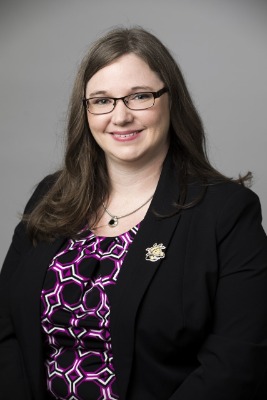
What skills and experience do you feel you gained from pursuing a history degree?
Critical thinking is a skill at the foundation of everything you do as a history major. This is reinforced in every reading, writing assignment, and class discussion. It is a skill that has served me well in every job I have held, and in everyday life. My time as a history student also helped me become more confident in my own abilities, and more willing to be an active participant in conversations and activities.
What was your experience on the job market after leaving Wichita State University?
Shortly after graduating I moved to the Marshall Islands where I taught Developmental English at the College of the Marshall Islands for four years. During my time there I also served as the Associate Director of a small nonprofit organization that worked to educate marginalized and at-risk youths. The experience I gained during my time at WSU served me well in both of these positions. After moving back to the U.S. in May 2016, the job market was tough for me. The teaching positions I’m qualified for in Kansas are few, and there weren’t too many museum positions available. Some of the jobs I applied for I found out I was overqualified for. After 9 months of searching, I was hired by the Hugo Wall School of Public Affairs here at Wichita State to be their Student Services Coordinator. I have been in this position since April.
How has the study of history helped your current work with Wichita State University?
Much of the study of history is about thinking critically about people, societies, and events, putting them into proper context, and communicating what you know and what you have learned. These skills can be translated to apply to so many different situations, and I use them daily in my office work and in my interactions with students, faculty, and staff in my department and on campus, and when I am out and about doing recruitment for the MPA program. As if that wasn't enough, studying history has made me a more thorough and thoughtful person.
The Local Is Where History Happens: The Local and Community History Program
2017 has been a year of change for the Local and Community History Program. Bob Keckeisen has announced his retirement from teaching the HIST 703 Museum Administration class. He will be missed although his influence will live on in the many museum professionals who have taken his course over the years. Thank you, Bob, for all your years of service! In 2018, Lisa Dodson, the executive director for the Kansas Museums Association, will teach HIST 703 and we wish her well in this endeavor.
2017 has also seen changes to HIST 701, the introduction class. This year, the course has been reframed to highlight the Kansas Leadership Center’s leadership approach as a coordinating theme. Towards that, Jay Price and Seth Bate, WSU History Student and Director of the Center for Leadership Development at Wichita State University’s Community Engagement Institute have teamed up to co-teach the course. Using the redevelopment of Wichita’s North End neighborhood as the focus for this semester, the class teaches the skills of local and community history and leadership development. The goal will be to offer this class both to WSU students and members of the broader community who will come away with better skills to explore the history close at hand.
Another change has been that Dr. Lorraine Madway has left her role at Special Collections to take a new position. Jessica Mirasol has come on board to guide Special Collections, bringing with her a strong focus community interaction.
It has been gratifying seeing students from the program going on to new opportunities. Lindsay Flory is doing great with North Dakota Public History circles. Keith Wondra remains active in his curatorial efforts at Old Cowtown Museum and is now embarking on a history of the Delano neighborhood. Jordan Poland and Laura Hartley continue to guide the Kansas Sports Hall of Fame. Sandra Reddish has recently become Historic Sites Coordinator for the Nebraska State Historical Society. Bethany Kennedy has returned from the Marshall Islands to become Student Services Coordinator for Wichita State’s Hugo Wall School of Public Affairs. Current students, too, are doing amazing work, such as Barb Myers’ efforts to preserve Highland Cemetery and Andrea Wilson working at Sedgwick County Records Management (alongside alums Melissa Thompson and Mary Macklin).
Fiske Bricks!
In 2015, the Department of History began honoring the winners of the Ard Faculty Award with Fiske Bricks — original bricks from Fiske Hall which were salvaged from the building in the process of constructing the new elevator. These bricks speak to the strong foundations which our teachers hope to give our students through our classes, and which the study of the past gives to all students, young and old.
The 2016-2017 Fiske Brick was given to Dr. Robert Weems who’s teaching has been a critical component of the Department of History at Wichita State University ever since he has arrived in Kansas—congratulations Robert!
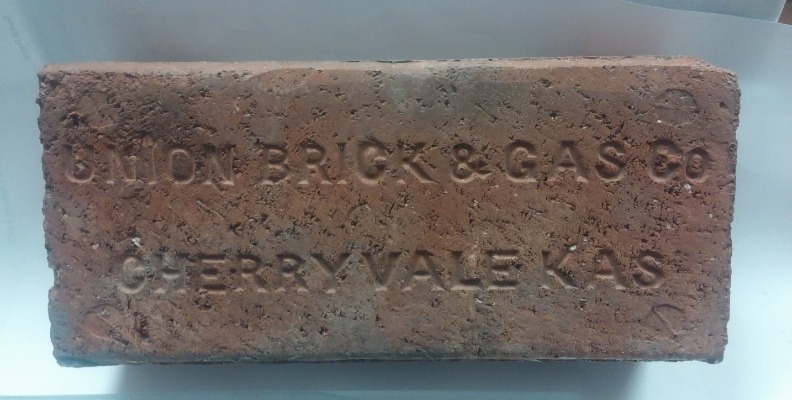
Behind the Camera …
with Dr. Helen Hundley
The History Department continues its television program, Issues in History Today, which showcases topics of interest to the public by utilizing the expertise of WSU history faculty.
To commemorate their centenary, Dr. Dreifort, Dr. Hundley, and Dr. Hayton presented “Bloody Battles of 1916,” an episode focusing on the battles of Verdun and Somme which took place during the First World War in 1916. In addition to basic information on these important Western Front confrontations, Dr. Hayton and Dr. Dreifort added especially interesting information pertaining to both the French and German motivations behind the battles.
In the coming year, the series will have an episode on the centennial of the Russian Revolution and an interview with WSU alumni, Cleo Littleton.
This summer, the university closed its television channel, a reflection of changing viewing habits. Nevertheless, Issues in History Today will continue to be broadcast online. Past and future episodes are available on Youtube at WSUTV, “Issues in History Today.” Viewers can easily access the series directly through Youtube as well.
See: https://www.youtube.com/user/WichitaStateTV/videos
Faculty News
2016-2017 was another full year of activity for George Dehner. His article “Building a Better World for You” was accepted for publication in Environmental History; he had a book and article review published; he is currently working on an invited article for a special edition of Asian Review of World Histories to celebrate Patrick Manning’s career; and he continues his research for the Legionnaires’ disease manuscript on which he is working. He also has a full plate of classes, cheerful students, and service committee work to keep his hands busy. In addition, George and his wife Jodi are enjoying the bustling sports and school schedules of their three boys (Brendan, Patrick, and Sean) and their dog Trooper’s lofty agenda.
Modern Europeanist John Dreifort continues to teach his full range of modern European courses. To his repertoire he has added a new course, The Vietnam Conflict. It has been well received, and in light of the Ken Burns’ PBS series on the Vietnam War, it is a timely offering for department’s majors as well as non-majors. He sees it as a cautionary tale regarding the causes and conduct of U.S. current and future military engagements in the world. As part of the department’s community outreach, he continues to teach over-subscribed adult education classes each semester to senior citizens, who he appreciates for their enthusiasm, knowledge, and dedication to lifelong learning. He continues to plug away at his research related to the World War II relationship between Generals Eisenhower and De Gaulle, which unfortunately often gets shoved to the back burner by course demands. He enjoys hearing from his many former students and learning how they have used their history training in a whole host of careers and lives well lived.
The past year has seen Jeff Hayton, in the face of soul-destroying red tape, heroically, nudge several long-term publication projects towards completion. After years of editorial limbo, an article forum which he and two colleagues put together finally appeared in print: ‘Music and Space’ in the journal Contemporary European History, Vol.26, Nr.2 (May 2017) which included his contribution, “Crosstown Traffic: Punk Rock, Space and the Porosity of the Berlin Wall in the 1980s”. In addition, another chapter has been accepted, “Punk Authenticity: Difference across the Iron Curtain” for the edited collection on alternative culture in the 1970s, The Politics of Subjectivity: Alternative Authenticities in the Age of Normalization, eds. Joachim Häberlen and Mark Keck-Szajbel. Finally, and most importantly, his book manuscript, Culture from the Slums: Punk Rock, Authenticity, and Alternative Culture in East and West Germany, after much delay and general frustration, is now in the hands of reviewers at Oxford University Press with the hopes that publication will take place next year (fingers crossed).
On the teaching front, this year will see some old standards (Western Civ and methods courses) along with some new initiatives: a course on Nazism and the Third Reich that will appear in the Spring semester, as well as a class called “History on Film: Communism on the Silver Screen”. He hope one day to offer several possibilities under the ‘History on Film’ rubric. In addition to these standard classes, Dr. Jay Price and he will be team-teaching an adult education course at Larksfield on rock’n’roll and Wichita, 1950s-1980s.
There are also two big new projects that he is working on now. The first is putting together an international conference along with his colleague Dr. Julia Sneeringer (CUNY) on ‘Youth and German History’ that will be held at the German Historical Institute in Washington, D.C. in the next year or two. The hope is to see a three-day workshop, an edited volume and an interactive web-platform develop out of this initiative. The second is his involvement in a British Arts and Research Council-funded collaboration that examines the relationship between British and German popular music in the 1970s. In addition to standard academic fare (conferences, edited books), we are also putting together a public exhibition and, if all goes well, a multimedia concert with bands and musicians from the era such as Kraftwerk.
During 2017, Dr. Robin Henry had essays published and accepted for publication in the Journal of the Gilded Age and Progressive Era and the Journal of the History of Sexuality. In addition, she contributed an essay on the history of hate crimes legislation and sexual violence to a collection on Matthew Sheppard to be published in 2018, the 20th anniversary of his murder.
In addition to her research, Dr. Henry continued her work with the Law and Public Policy consortium and as a Faculty Fellow, both in the Bill and Dorothy Cohen Honors College. She continues to serve on the Editorial Board of HSHGAPE, the online listserve for the Society of Historians of the Gilded Age and Progressive Era; write and deliver historical commentary for the series “Past and Present” on KMUW; organize the Department of History’s speaker series; and is finishing her final year as both a member of the editorial board for the University Press of Kansas and as faculty representative on the Art Alliance of the Ulrich Museum of Art at Wichita State.
Following her work on the Mongol Empire, Helen Hundley is working on a book manuscript focusing on the Russian Empire in Siberia in the nineteenth century.
She continues her role as Faculty Editor for The Fairmount Folio. She also continued to producing the new departmental television program, “Issues in History Today.”
Robert M. Owens continued to serve as the Department’s M.A. program coordinator, and led the effort to draft a handbook for the History M.A. program (available on the department’s “Graduate” web page.) In addition to teaching the first half of the U.S. History survey, he taught Colonial America, Revolutionary America, and the Introduction to Research and Writing. On the research front, Owens organized and chaired a panel for the Society for Historians of the Early American Republic (SHEAR) conference in Philadelphia in July, 2017. He delivered the paper “When a Big Tree Falls: Death and Diplomacy in Anthony Wayne’s Legion,” for a panel that included WSU alum Daniel Papsdorf (Ph.D. Duke University, 2017). Owens continues to labor on his manuscript about murder and suicide on the early American frontier, despite the fact that it frequently bums him out.
In addition to serving as chair, directing the Local and Community History Program and taking on the Great Plains Studies Certificate Program, Jay Price has been able to engage in a number of unique projects. He has been the editor of a book that documents the history of rock music in Wichita. This work, published through Mennonite Press, is the hard copy version of the Wichita Rock Music Historic Project (Check us out on Facebook at: https://www.facebook.com/Wichitamusichistoryproject/?ref=bookmarks) and will come out at the end of this year. This research has also served as the basis for an adult education class on the same topic, team taught with Jeff Hayton.
A second project has been a graphic novel that tells the story of the Chisholm Trail through the eyes of a cartoon longhorn named Luke. This work celebrates the 150th anniversary of the trail and will be the first of a trilogy where Luke the Longhorn takes the reader through the early history of Wichita. This book involves WSU history students Andrea Wilson, Barb Myers, and Lisa Duran, writer Matt Pacholski and artist Miles Foley. Proceeds for this book, like that of the Wichita rock history work, will go back to the department to support future publication and scholarly work that will involve WSU faculty and students.
Price is also part of a team that is overseeing the development of an interpretive display in the original Pizza Hut building. Relocated next to the Marcus Welcome Center, the Pizza Hut building will house a display that tells the story of the Carneys, the Pizza Hut franchise, and the challenges and opportunities of entrepreneurship. With Flint Hills Design as the main exhibit creators, the project will be available to the public in early 2018.
Price’s more academic pursuits have included an article on ethnic entrepreneurship on Broadway, an article on Mennonite religious architecture in the 1950s, and several pieces that explore Wichita’s complicated Bible Belt legacy. These efforts have kept him busy, as well as personal activities including some travel, helping his parents on their own book project, and, most excitingly, getting married in September of 2017.
Craig L. Torbenson continues as the department undergraduate advisor and running when not injured. He begins a new role as co-Director of the Derby Kansas Family History Center in fall 2017 along with his wife, Bonnie. During the summer, he and Bonnie traveled through fourteen states (eight for the first time), drove over 1470 miles and got hooked on seafood. Sites visited included: Wal-Mart museum, Ft. Smith, Central High School in Little Rock, several plantations in Louisiana, New Orleans, U.S.S. Alabama, Destin (Florida), Fort Augustine, Savannah, Charleston, drove the outer banks of North Carolina, Kitty Hawk, Fort Raleigh (lost colony), Monticello, Gettysburg and Flight 93 Memorial. He continues working on a couple of long-term projects.
Professor Robert Weems has been engaged in a variety of activities during the past year. Besides his teaching, he has continued his active research and community engagement agenda.
This past summer he completed all of the tasks associated with his “Wichita African American Business History Project” and on September 12, 2017, he officially donated these materials to Special Collections in WSU’s Ablah Library. The thirty-two audio interviews (with transcripts), along with other relevant historical documents, will represent a database of information for persons seeking more information about this aspect of local history.
September 2017 was a very good month for Professor Weems. His co-edited book Building The Black Metropolis: African American Entrepreneurship in Chicago was officially released on September 4 by University of Illinois Press.
His work on the noteworthy African American entrepreneur Anthony Overton generated some important publications during the past year. Besides a chapter in Building The Black Metropolis entitled “Contested Terrain: P.W. Chavers, Anthony Overton, and the Founding of the Douglass National Bank,” Weems also published an article in the Fall 2016 issue of The Journal of African American History entitled “A Man in a Woman’s World: Anthony Overton’s Rise to Prominence in the African American Personal Care Products Industry.”
In terms of community engagement, he continued to provide periodic commentary to Wichita’s public radio station KMUW as part of its “Past and Present” series. He also continued in his role as President of the Board of Directors of the Kansas African American Museum. In addition, Weems, who joined the Wichita/Sedgwick County African American Council of Elders in 2014, was named Presiding Elder of the organization in January 2017. Finally, Professor Weems continues to serve on the Executive Committee of the Wichita chapter of the Heartland Black Chamber of Commerce. He has been responsible for establishing and coordinating the group’s “Wichita Black Business Hall of Fame” initiative.
Based upon his myriad involvements, both on and off-campus, the Wichita branch of the NAACP has selected Professor Weems to receive its “H.T. Sims Excellence in Education Award” during its 98th Annual Freedom Fund Awards Banquet on September 30, 2017.
On the Bookshelf …
with Dr. Robert Weems
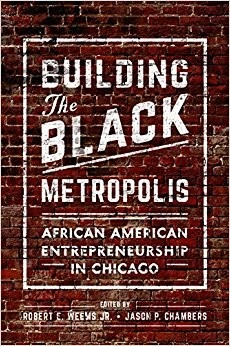
From Jean Baptiste Point DuSable to Oprah Winfrey, black entrepreneurship has helped define Chicago. Robert E. Weems Jr. and Jason P. Chambers curate a collection of essays that place the city as the center of the black business world in the United States. Ranging from titans like Anthony Overton and Jesse Binga to McDonald's operators to black organized crime, the scholars shed light on the long over-looked history of African American work and entrepreneurship since the Great Migration. Together they examine how factors like the influx of southern migrants and the city's unique segregation patterns made Chicago a prolific incubator of productive business development” and made building a black metropolis as much a necessity as an opportunity.
Fairmount Folio
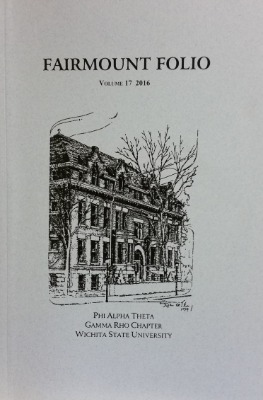
The Department of History’s publication for student writing, The Fairmount Folio, will publish volume 18 in the spring of 2018.
In addition to the hard copies, the journal is now available electronically through the library and through the department web site. All of the articles, from volume 1 in 1996 to the present, are available.
HOW TO FIND: Beginning at the main page of Ablah Library, under Library Resources, go to OJS-Hosted WSU Journals. The Fairmount Folio is available here. You may search for the work of an individual author, topic, or volume. The site is easily accessible.
Faculty Editor, Dr. Helen Hundley
Student Awards 2016-2017
Thanks again to the very generous nature of our supporters, the history department was able to distribute a number of scholarship and paper awards. For the paper categories, there were two undergraduate and two graduate selections made. Juan Cancino’s paper was chosen to receive the Douglas Bendell award for best submission in the History 300 course (Introduction to Research Methods) and Ciara Mould’s entry was picked for the John Rydjord Jr. award which is given to the best upper-division undergraduate paper. Two categories are available for graduate students. Austin Setter’s paper was tapped for the Fiske Hall Non-Seminar prize, given to the best graduate paper in a non-seminar class, and Andrea Wilson won the Fiske Hall Seminar award for best paper in a seminar class.
At the undergraduate level, the department is pleased to recognize the outstanding merit of the following students with scholarship awards. Brooke Talbott was identified as the superior sophomore history major and has received the Lee and Helen Kamen scholarship. Adam John’s academic performance was recognized with Donna and Bill Ard scholarship while Amanda Underwood garnered the Dr. Henry and Minnie Onsgard award. Gabriella Garrett’s excellent work was rewarded with the “Jed” Hurley prize and Israel Hesse-Birmingham nabbed the Decker-Kansas Society of DAR grant. Rounding out the undergraduate awards, Derek Landwehr snagged the Russell “Jiggs” Nelson and Kaleigh Maison reeled in the Marie Graham Memorial Award.
The department was fortunate to again be able to offer two graduate scholarships this year with Andrea Wilson receiving the Anthony and Dana Gythiel scholarship. Seth Bate’s outstanding graduate career was capped with the John Rydjord Graduate Fellowship.
We are also pleased that two travel-assistance prizes will be available to graduate students to support their research—the Miner/Unrau award and the Mike Heaston Phi Alpha Theta Research Award—and a new paper award for Phi Alpha Theta members titled the Phi Alpha Theta Kind Shepherd Award will soon be offered. The department looks forward to announcing future winners of these awards in this space. As always, congratulations to the winners and many thanks to our very generous benefactors.
Author's Night!
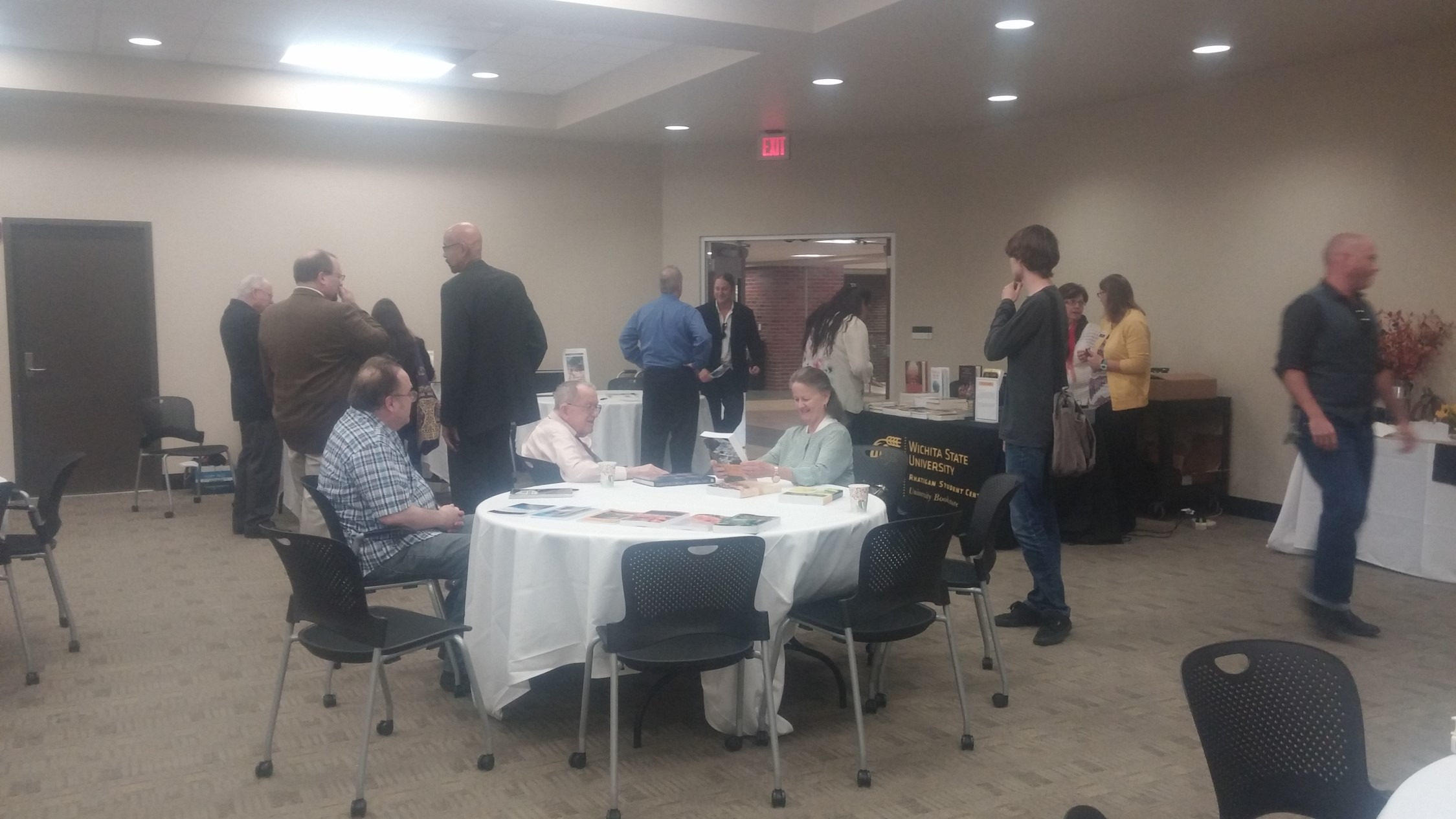
On October 22, 2016, the History Department held its first ever Author’s Signing Night to showcase the scholarship produced by its faculty.
The Life of an Historian …
with Dr. Robert M. Owens
In July I flew to Philadelphia for the Society for Historians of the Early American Republic (SHEAR) conference. I organized and chaired a panel titled “Murder, Land, and Negotiation: Looking for Justice on the early American Frontier.” The panel featured commentary from Prof. David Nichols (Indiana State University), and papers from myself, Prof. Elspeth Martini (Montclair State University, NJ), Prof. Gregory Dowd (Helen Hornbeck Tanner Professor of History at the University of Michigan), and Dr. Daniel Papsdorf (Ph.D. Duke University, 2017; M.A. Wichita State University, 2010). The panel had exceptionally good attendance for this conference – nearly 40 people, most of whom I assume were there to see Greg.
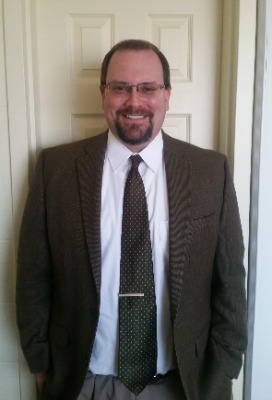
In addition to seeing some excellent panels, I hoped to tour the new Museum of the American Revolution, sneak a research day in the archives of the Historical Society of Pennsylvania, and eat an obscene amount of really good Chinese food. I achieved each of these goals. The Museum of the American Revolution opened this previous April, and was certainly worth the trip. I was particularly drawn to a wing devoted to the experience of Iroquois League of Indians – some of whom fought with the Revolutionaries, while others allied with the British. A display of some ultra-rare fragments of a statue of George III also caught my attention. Cast of lead and then gilded, the equestrian statue of the king was erected by proud Philadelphians in celebration of Britain’s victory in the Seven Years’ War in 1763. Little more than a dozen years later, when the American Revolution began, some of those same Philadelphians tore the statue down and melted the lead into bullets for the Continental Army. Clearly the museum feels that its greatest prize is a painstakingly restored marquee tent used by General Washington during the war, and passed through several generations of his family (including Mary Custis Lee, Robert E. Lee’s wife), until a patriotic Philadelphian purchased it. The general’s tent has its own theatre, and is secured behind plexiglass and a curtain. An introductory short film, and dramatic orchestral score, made for a surprisingly moving experience as the curtain finally rose to reveal the canvas relic.
Scholars who have visited the Historic Society of Pennsylvania tend to agree that the collections are outstanding, even if their massive size can sometimes overwhelm the archival staff and their finding aids. I only managed one day there, but was nevertheless thrilled to plow through the papers of Revolutionary War hero General “Mad” Anthony Wayne. As the highest-ranking officer in the U.S. Army in the early 1790s, Wayne’s papers provide a great cache of documents regarding Indian affairs, frontier law enforcement, and the difficulties of supply and logistics in the Ohio Valley. While being periodically reminded that garbage trucks and taxis immediately beyond the reading room windows cared little about library patrons’ desire for quiet, I noted that the room was near capacity with bespectacled figures hunched over laptops. This was understandable, given that SHEAR was in town, and the HSP had generously waived our admission fees for the week. Yet I was nevertheless surprised to see, diagonally across the table, Alan Taylor. The Thomas Jefferson Foundation Chair of History at the University of Virginia (which Jefferson founded), Prof. Taylor has the rare distinction of winning the Bancroft Prize (the most prestigious award for American history books) and the Pulitzer prize for American History (twice). He had also brought a research assistant, because that’s what academic rock stars do. I marveled at the work ethic that would lead one already so accomplished to continue to strive so diligently, and decided against awkwardly reminding him that I had once met him at a group lunch at a conference years ago. Besides, rock star or not, I had no intention of sharing that evening’s sweet & sour pork.
Alumni News
John Aarsen (MA 1997) continues to work at the 82d Airborne Division War Memorial Museum as Director. He continues to support the 82nd Airborne Division and its 22,000 paratroopers with history and exhibits. He also continues to be active in the museum community and recently completed another MAP visit (peer review through the American Alliance of Museums). In September 2017, he was promoted to Brigadier General in the U.S. Army Reserve and took command of the 451st Expeditionary Sustainment Command in Wichita. John lives in Fayetteville, North Carolina.
Dan C. Fullerton (MA 1998) went on to complete a PhD in History from the University of Kansas, being subsequently hired as an Assistant Professor for the US Army 's School of Advanced Military Studies (SAMS) at Fort Leavenworth, KS, where he taught courses in Strategic Decision Making, the History of Civil-Military Relations, Twenty-first Century Conflict, Regional Studies, Strategic Leadership, and coordinated and led multiple fieldwork trips around the US and overseas to UK, Belgium, Germany, China, Australia, Vietnam and India. In 2012, he was promoted to Associate Professor of Military History and afterward has taught classes in the theory, history, and design of Operational Art. In 2017, Louisiana State University Press published his work entitled Armies in Gray: The Organizational History of the Confederate States in the Civil War and at present, he continues to work on the companion volume about the Union Army in the Civil War.
Angie Gumm (MA 2006) is working on her thesis for her theology M.A. from Newman University. It is on Pope Leo XIII and his encouragement of women. Much like her history thesis and dissertation at this stage, it is not clear whether she will complete it within the given time! She also got to attend two workshops for social studies teachers this summer, one through Gilder Lehrman at Yale with John Demos on colonial life and the other at Colonial Williamsburg through their teacher institute.
Kathleen Epps Hankins (BA 1967) is an active member in a variety of ways at Hillside Christian Church. She researches family history. She retains memberships in Alpha Chi Omega Sorority Alumnae, the Junior League of Wichita Sustainers (inc. Wit & Wisdom Board), & the local Historic Preservation Alliance.
Hewlett, Richard (BA 2017) earned numerous degrees from WSU over many years, most recently in the history department. He is a 12-year Naval veteran with numerous deployments in Iraq and Afghanistan and currently serves in Naval Intelligence at the Joint Chiefs of Staff, Directorate for Intelligence.
Sadonia Lane (BA 2008, MA 2016) is the Director of Student Financial Assistance for Tabor College located in Hillsboro, KS, and Tabor College Wichita & Online. She was a contributor to Kansas: In the Heart of Tornado Alley book. She also listed the Wirkler-Krehbiel home in North Newton, KS, on both the State and National Register of Historic Places. Lane has taught American history courses and Adult Basic Education courses with Hutchinson Community College as well. She has also served the Kansas Association of Financial Aid Administrators (KASFAA) as a board member and presented numerous workshops over Student Loan Repayment. She got married on December 30, 2016, and has gained another son. She currently lives in Riverside, Wichita.
Lana Wirt Myers (BA 1978) has been a freelance writer in Newton for over 30 years. The University Press of Kansas is publishing her latest book, The Diaries of Reuben Smith, Kansas Settler and Civil War Soldier, scheduled for release in April 2018. She also is the author of Prairie Rhythms: The Life and Poetry of May Williams Ward, which was named a 2011 Kansas Notable Book.
L. Stephen Perry (BA 1972) earned an MA in Latin American History from Indiana University, Bloomington, and then in 1975, a Master's in Latin American History from the University of Texas at Austin (UT-Austin). From 1975 to 1998, he worked at the University Libraries at the University of Arkansas, Fayetteville, serving academic departments as a Reference / Research Librarian in the Humanities and Social Sciences -- including giving hundreds of presentations over the years for research classes on how to use databases. From 1998 to 2015, he joined the U.S. Department of State as a Foreign Service Officer (FSO) working at U.S. Embassies in Latin America, West Africa, North Africa, the Middle East and Washington, D.C. Currently, he is a Librarian and Teacher at the American International School in Nicosia, Cyprus, after joining the Faculty there in August 2015. Cyprus is a lovely island in the eastern Mediterranean, located almost halfway between Turkey and Egypt.
Brady G Simmons (BA 2004) earned a Masters in History in September 2015 from Southern New Hampshire University. He was awarded the Academic Achievement Award for maintaining a 4.0 GPA throughout the entire course of study. His thesis was entitled "Ration Day Seldom Found My Haversack Empty" which focused on the trade soldiers did in military and prison camps during the American Civil War. The title came from a quote from his great-great grandfather's Civil War Diary where he described his ability to scrounge and trade for food. Currently he is working on expanding the paper into a book while also starting to work on another book based on the memoirs of William Lyman, a corporal of the 7th Kansas Cavalry that he discovered at the Kansas State Historical Society Archives while researching his thesis.
Scott W. Stucky (BA 1970) became Chief Judge of the United States Court of Appeals for the Armed Forces on 1 August 2017, on which he has served since 2006. The Court exercises worldwide appellate jurisdiction over cases arising under the Uniform Code of Military Justice, the criminal statute that governs members of the U.S. armed forces (and certain others) wherever assigned.
Keith Wondra (MA 2014) is Assistant Curator at Old Cowtown Museum.
In Passing:
Melvern N. Schroeder (MA 1956) passed away on November 26, 2016.
Lecture Series …
with Dr. Robin Henry
The Department of History’s Speaker Series entered its fifth year in 2017. In the spring, the department welcomed Dr. Kara Dixon Vuic, the LCpl Benjamin W. Schmidt Professor of War, Conflict, and Society in Twentieth Century America chair in history at Texas Christian University in Fort Worth, Texas. Dr. Vuic delivered an engaging talk on gender and military entertainment in the twentieth century.
For Fall 2017, we are planning an exciting lecture on the evening of Thursday, November 2nd at 7PM in 209 Hubbard Hall. Dr. Keona Ervin from the Department of History at the University of Missouri gave a well-attended talk based on her recently published book, Gateway to Equality: Black Women and the Struggle for Economic Justice in St. Louis.
For further information, please contact Dr. Robin Henry via email at: robin.henry@wichita.edu.
All lectures are free and open to the public.
Oral History Project …
with Dr. Robert Weems
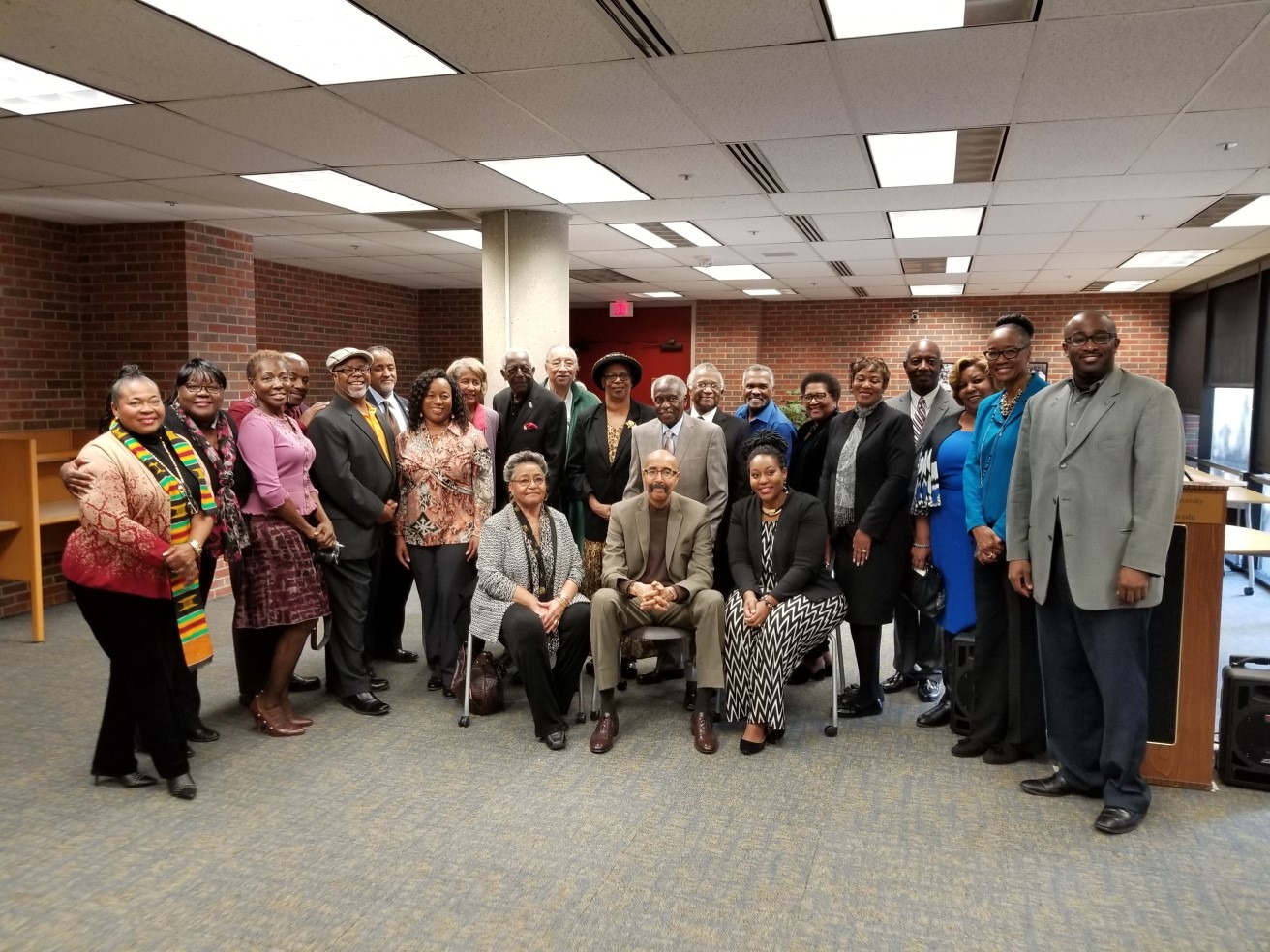
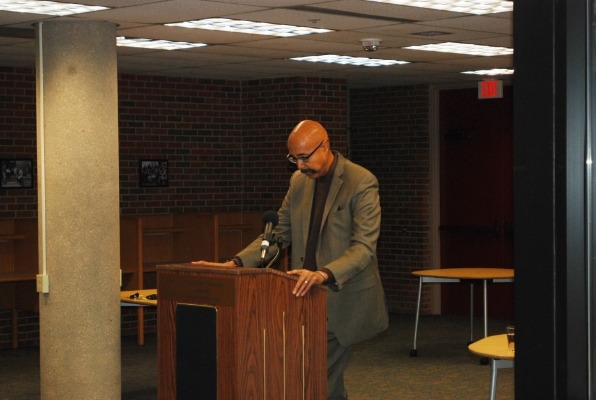
For the past several years, Dr. Robert Weems has been working on a project related to black entrepreneurship in Wichita. In the process of researching, he collected extensive materials. In September 2017, Professor Weems donated the audio interviews, transcripts and related artifacts associated with his ‘Wichita African American Business History Project’ to Special Collections and University Archives in WSU’s Ablah Library.
This database of information should be useful to students, scholars, and teachers, and the History Department and WSU is excited to now have access to such wonderful materials documenting Wichita’s history.

